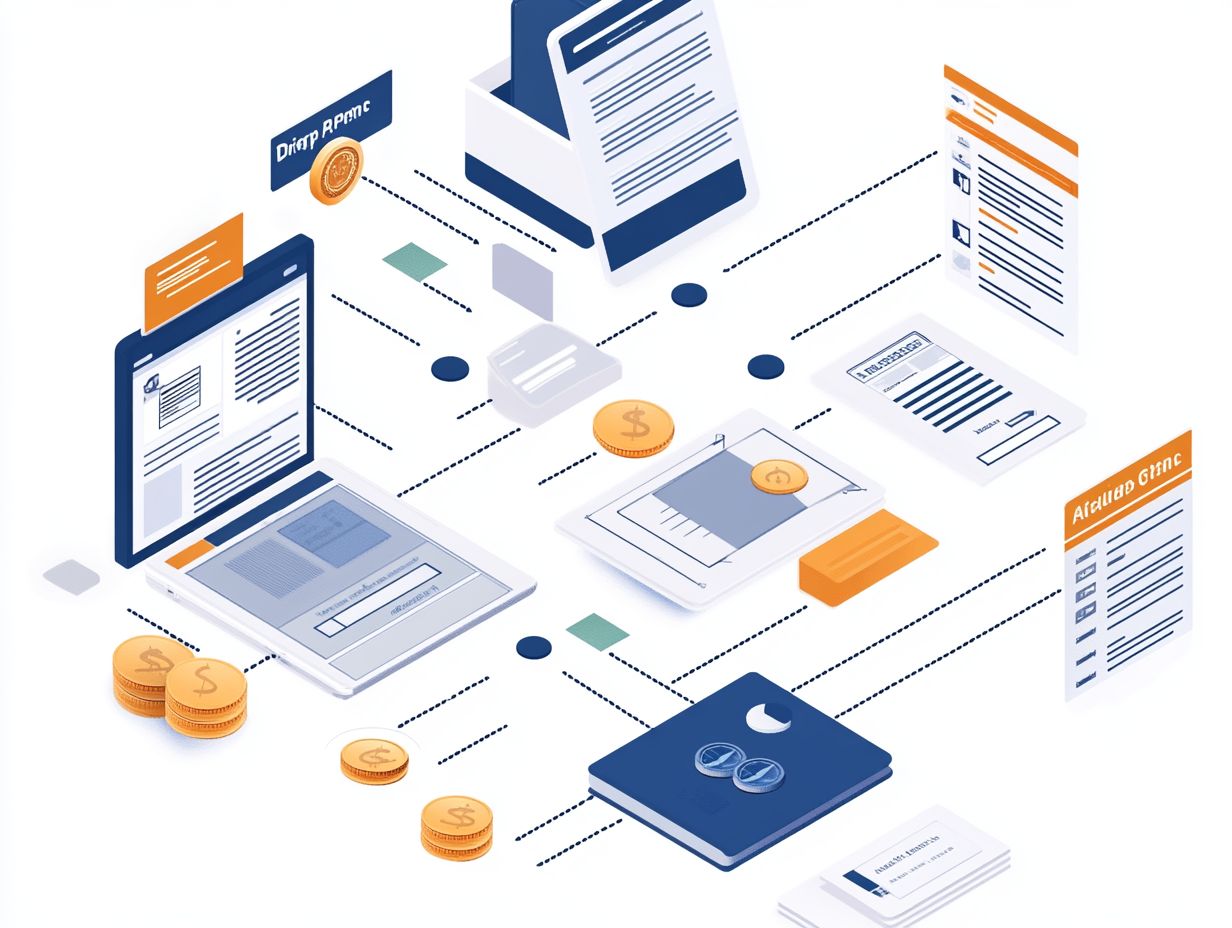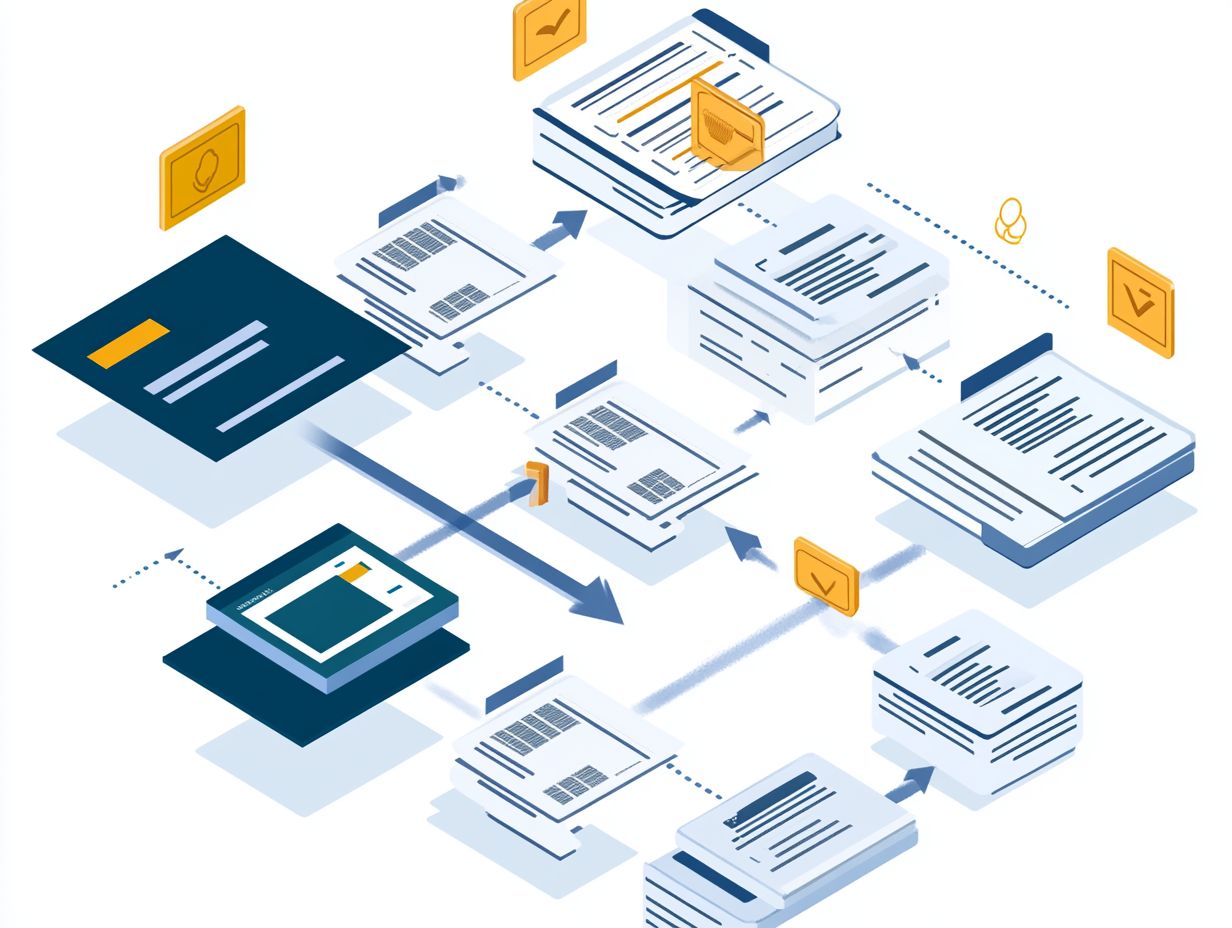Understanding the Credit Application Approval Timeline
Navigating the credit application process may seem daunting, but get ready to master it and boost your chances of approval!
Whether you’re pursuing a loan, mortgage, or credit card, understanding the steps involved is essential. This guide breaks down the entire process from the initial application to the factors influencing approval, such as your credit score, income, and employment history.
It outlines the typical timeline for approval and offers guidance on what to do if your application is denied. Empower yourself for success!
Contents
- Key Takeaways:
- The Credit Application Process
- Factors that Affect Credit Application Approval
- Timeline for Credit Application Approval
- What to Do if Your Credit Application is Denied
- Understanding the Reasons for Denial
- Steps to Improve Your Chances for Approval
- Frequently Asked Questions
- What is the credit application approval timeline?
- Why is it important to understand the credit application approval timeline?
- How long does the credit application approval process typically take?
- What factors can affect the credit application approval timeline?
- Can the credit application approval timeline be expedited?
- What happens after the credit application is approved?
Key Takeaways:

- Understanding the credit application process is your first step to securing the credit you need. Knowing what impacts your approval timeline is vital.
- Factors such as credit score, income, and employment history can significantly affect the approval timeline. It’s important to grasp these elements when applying for credit.
- If your credit application is denied, understanding the reasons is essential. Improving your credit score and financial stability can greatly enhance your chances of approval in the future.
The Credit Application Process
The credit application process is crucial for securing credit. It involves key components such as your credit report, an evaluation of your credit history, and a thorough analysis of your credit score.
Applying for a credit card? Know what you need! Credit card issuers will assess your ability to repay loans, which can significantly impact your chances of getting the credit you need for your financial decisions.
Steps to Apply for Credit
To successfully apply for a credit card, follow these essential steps:
Gather relevant applicant information and gain a clear understanding of your credit history and credit report. Collect necessary documentation like proof of income, identification, and possibly recent bank statements. Checking your credit score before you hit that submit button is vital; it helps you spot inaccuracies or issues to resolve.
Embracing an online application can greatly simplify the process, allowing you to conveniently input your information without the hassle of in-person visits.
Factors that Affect Credit Application Approval
Several factors can significantly impact the approval of your credit application. These include your credit score, credit history, and overall ability to repay loans. All of these undergo a comprehensive assessment during the application review.
Credit Score and History
Your credit score and credit history reflect your financial responsibility and play a pivotal role in determining whether your credit application is approved.
Credit scores typically range from 300 to 850 and are calculated based on various factors, including payment history, credit utilization, the length of your credit history, and the types of credit you use. A score above 700 is considered excellent, making you a prime candidate for loans with lower interest rates, potentially saving you thousands over time. Conversely, a score below 600 may lead to higher rates or even a denial of credit.
Recent statistics reveal that nearly 30% of Americans have a credit score below 600. By understanding how these scores are evaluated, you can make informed financial decisions and enhance your creditworthiness over time.
Start your journey to better credit today!
Income and Debt-to-Income Ratio

Income verification and understanding your debt-to-income ratio are essential in assessing your creditworthiness and determining your ability to take on more debt.
This ratio shows lenders how much of your income goes to paying debts. To calculate it, lenders divide your total monthly debt by your gross monthly income. The result is a percentage that indicates your debt repayment burden.
A lower ratio is generally preferred, signaling healthier finances and a stronger ability to manage new obligations. This ratio plays a critical role in the approval process, helping lenders assess risk and ensure they provide credit to individuals who can responsibly manage their financial commitments.
Employment History and Stability
Your employment history and job stability are crucial factors in determining your creditworthiness. Lenders often look for consistent income sources when evaluating your application.
A solid job history not only reflects financial responsibility but also serves as a key indicator of your ability to make timely loan repayments.
Lenders typically favor borrowers who have maintained sustained employment in a single role or company, as this suggests a reliable income stream. They may review how long you’ve been in your position and the nature of your employment. This focus on longevity highlights the importance of job stability for achieving financial security and can lead to better interest rates and loan terms.
Timeline for Credit Application Approval
Understanding the timeline for credit application approval is important, as it can vary based on the card issuer, the details of the underwriting process, and the completeness of your application. For a comprehensive overview, refer to understanding the credit card application process.
Typical Processing Time
The processing time for credit applications varies widely, ranging from just a few minutes to several days. This is influenced by factors like the card issuer and the complexity of your application.
For instance, many major banks offer instant approval options that can provide a decision in minutes, especially for those with strong credit histories. In contrast, specialty cards that offer attractive rewards may require a more detailed review, which can slow the process.
For example, a popular travel rewards card might take up to five business days for approval, while a basic purchase credit card could yield an immediate decision. If you request expedited shipping for your new card, you could receive it within one to three business days after approval, allowing quick access to your new credit line.
This variability in processing times caters to the diverse needs and preferences of individuals seeking credit, ensuring there’s something for everyone.
Factors that May Delay Approval
Several factors can cause delays in the approval of your credit application, including how thoroughly your documentation is verified and any issues that arise during the underwriting process.
Having too many credit inquiries can raise red flags for lenders, as this behavior may suggest financial distress or an over-reliance on credit. Each inquiry takes time to investigate, as lenders need to understand the reasons behind them.
Additionally, incomplete documentation like missing pay stubs or inconsistent income reporting can also extend the evaluation period.
Consequently, these factors can significantly prolong the overall approval timeline, often leaving applicants feeling frustrated and uncertain about the status of their credit.
What to Do if Your Credit Application is Denied

If your credit application is denied, it’s important to understand the reasons behind that decision. Taking proactive steps to improve your creditworthiness can significantly enhance your chances for future applications.
Understanding the Reasons for Denial
Knowing why your credit application was denied is crucial. This insight helps you identify and tackle issues affecting your creditworthiness.
Many people find themselves puzzled when their applications are rejected. Often, they are unaware that factors like multiple credit inquiries, high existing debt obligations, and a low credit score can influence their eligibility. By analyzing these elements, you can pinpoint specific barriers and formulate strategies to overcome them.
For instance, reducing the number of hard inquiries and paying down debts can positively impact your credit score over time.
Building a solid credit history with timely payments can significantly enhance your future applications. This effort makes it easier to secure favorable lending terms.
Steps to Improve Your Chances for Approval
Take charge of your financial future by boosting your credit score and ensuring financial stability through thorough income verification.
Start by meticulously reviewing your credit report to find errors that might be dragging your score down. Quickly addressing these inaccuracies can lead to significant improvements in your creditworthiness.
Focus on reducing existing debt, especially high-interest credit card balances. A lower amount of credit you use compared to the total available credit, known as credit utilization, signals to lenders that you are a responsible borrower.
Engaging in a preapproval process offers valuable insights into your financial standing. This process allows you to make strategic adjustments before submitting formal applications. Make sure to consistently make your payments on time and maintain a diverse credit mix to further strengthen your profile, paving the way for successful credit endeavors.
Frequently Asked Questions
What is the credit application approval timeline?
The credit application approval timeline is how long it takes for a lender to review and decide on your application.
Why is it important to understand the credit application approval timeline?

Understanding this timeline helps borrowers manage their expectations and plan for their financial needs.
How long does the credit application approval process typically take?
The credit application approval process varies by lender but usually takes a few days to a few weeks.
What factors can affect the credit application approval timeline?
The timeline can be impacted by factors such as the lender’s workload, the complexity of the application, and the borrower’s credit history.
Can the credit application approval timeline be expedited?
In some cases, lenders may offer expedited processing for an additional fee. However, this is not guaranteed and may still take time.
What happens after the credit application is approved?
When the credit application is approved, the lender typically sends a notification to the borrower and proceeds with the necessary steps to disburse funds or open the credit account.






